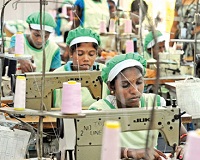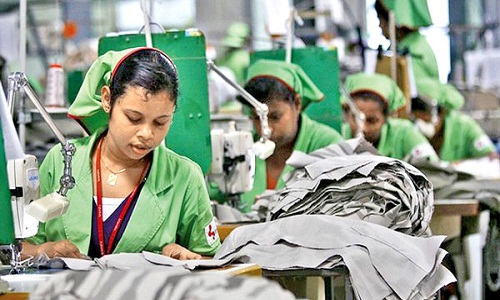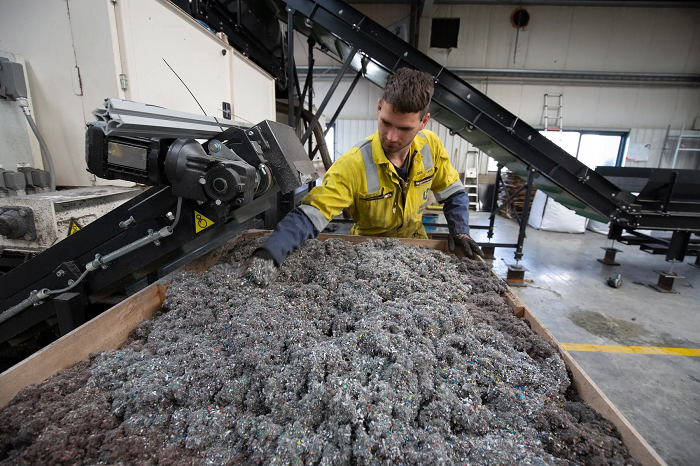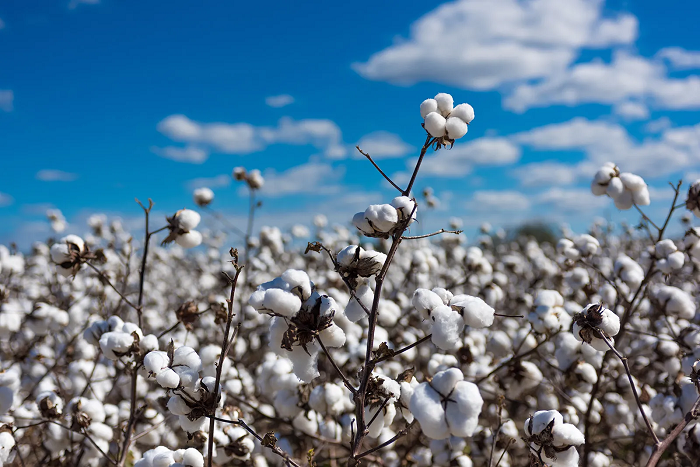FW
Drapers Sustainable Fashion, to be held on March 14, 2019 in London, will bring together the most sustainable brands and retailers, trailblazers and disruptors, progressive thinkers and pioneers to discuss what can be done for sustainable fashion and why change is not optional.
Sponsored by Isko, the event will be attended by fashion brands and retailers, clothes manufacturers, supply chain experts, innovators and anybody for whom sustainability matters. The event profile will comprise negotiations, projects showcasing sustainability in action, and start-up innovations. It will deal with the potential of sustainability to make a difference to the world.
The first half of the day will be dedicated to a series of keynotes – a combination of standalone talks, interviews and debates, which will be presented by world-leading retailers, brands and experts, who are pushing the sustainability agenda in fashion retail. They will focus on how to turn the fashion business into an ethical, environmentally friendly and profitable industry.
In the afternoon, brands will showcase clothes made out of recycled bottles, mobile repair stations, laser and 3D technologies. The event will showcase the projects and initiatives that are pushing the boundaries of sustainability.
Welspun India expects its volume to grow at eight to 10 per cent in the current financial year. The textile maker is witnessing a substantial pickup in demand from the US. The company is seeing substantial growth in e-commerce and has developed a few products for the online marketplace as well.
Capacity utilisation has gone up from 80 per cent clocked in the previous financial year. The plan is to invest Rs 900 crores as a part of capital expenditure. Capital has been set aside for a new flooring unit in Telangana. Indian cotton exporters have gained prominence in the US over the last six to seven years, driven by healthy cotton production and lower labor costs.
The company has a guidance of eight to ten per cent in volumes for the current financial year. Hydro cotton has been commercially successful and continues to see good growth. Welspun sees a promising future for WEl-Trak after the success of hydro cotton. The textile firm sees a positive growth momentum in volumes and is confident of achieving its annual guidance for revenues and profits. Welspun continues to pursue its differentiation strategy based on branding, innovation, sustainability and its patented traceability solution.
Discussions on the proposed Regional Comprehensive Economic Partnership (RCEP) are proceeding more or less smoothly. Despite treading diametrically opposite paths on tariffs and market access, India and China, along with other nations, have hit it off on points regarding investment norms. The RCEP is a proposed pact between 10 Asean economies and six other nations (New Zealand, Australia, China, India, Japan and South Korea).
Most nations have agreed to ease the investor-state-dispute settlement (ISDS) clauses. These refer to a broad range of legal and policy norms regulating the process by which an investing private entity from another nation may seek legal recourse in the event of a dispute with the state. India also secured a commitment that ISDS will also not be valid on prohibition of performance requirements that deals with technology transfer and royalty payments.
India is cautious with regard to any measure that allows the aggrieved party to approach an international tribunal of law due to bad experiences earlier. Back in 2012, international investors in telecom companies, whose operational permits were cancelled by the Supreme Court in the wake of the 2G scam, had approached an international tribunal and sued the country for damages. While India avoided paying significant charges, the episode dented the country’s reputation as an investment destination.
Sri Lankan is looking to expand its businesses in Pakistan. Among the companies looking to expand in Pakistan are: MW Ventures and the Hirdaramani Group. Hirdaramani is a pioneer in the Sri Lankan apparel industry, and boasts of a cohesive infrastructure providing end-to-end supply chain solutions to the industry through factories in Sri Lanka, Bangladesh, Vietnam and Ethiopia. Hirdaramani's partnership with leading global brands has helped it gain a reputation for streamlined processes and top-quality products.
MW Ventures is a service oriented organisation comprising different sectors of expertise focusing on marketing, financial management, and event management. It also provides financial management solutions for businesses or for individu Foreign investment in Pakistan is protected by rigorous laws and foreign direct investment regulations allow full repatriation of capital and profits. Moreover, Pakistan’s location on the cusp of important economic regions, young population and skilled labor force supported by a rapidly growing technology infrastructure has made it an attractive destination for investment not only for the domestic market but also as a production and export hub for the rest of the world.
Sri Lanka has aspirations to become a middle-high income country by 2025 by having a highly competitive economy with a diversity of products and services for local requirements and export markets.
HKTDC will organize nine fairs in Hong Kong from September to November. These will cover watches and clocks, fashion, electronic products, lighting products, green products, spectacles as well as wine and spirits. The fairs will serve as an ideal platform for traders and suppliers from India to expand their businesses into new markets.
Indian buyers, distributors and retailers can experience the benefit of sourcing through HKTDC’s trade fairs. India is Hong Kong’s seventh largest trading partner. In the first half of 2018, total trade between Hong Kong and India was $14.4 billion. In particular, Hong Kong’s total exports to India amounted to $8.3 billion and total import value from India reached $6.1 billion.
Indian companies are keen to seek business opportunities through HKTDC’s exhibitions. HKTDC’s fairs, some 30 of them, attracted about 39,000 exhibitors and over 7,50,000 visitors from all over the world in 2017-2018. Of these, over 14,000 exhibitors and buyers are from India.
HKTDC exhibitions are supported by a combination of international quality exhibitors and buyers. Synergised with mobile-friendly sourcing services, the HKTDC marketplace app, and more than 20 print and online product magazines and industry supplements, these exhibitions are the perfect starting point for year-round business connections between buyers and suppliers, facilitated by the organiser’s integrated online-offline marketplace.
Cotton Council International (CCI) has created an array of US cotton-rich apparel with the help of innovative technology. It will showcase different ways to use US cotton in apparel that benefit consumer demand, while providing global brands and retailers product opportunities that can drive sales growth.
CCI has done innovation in technologies, fabric blends, performance, design and fashion. Since introducing its What's New In Cotton initiative last fall, CCI has teamed up with more than 12 partners from across the world to present textile innovations that inspire new uses of US cotton.
Past innovations included workout wear that promotes faster recovery times, all-natural odour control towels and bed linens and a new technology to produce a softer cotton. All these innovations feature US cotton-rich fabrics.
Companies joining the Cotton USA licensing program can capitalise on US cotton’s sales benefits and streamline their sourcing. The Cotton USA mark is preferred by a 4-1 margin over a 100 per cent cotton label. Furthermore, consumers are willing to pay more money for products with the mark.
Cotton Council International, the export promotion arm of the National Cotton Council of America, is a non-profit that promotes US cotton fiber and manufactured cotton products around the globe with its Cotton USA trademark.
The British Fashion Council (BFC), a non-profit trade organisation, will hold a fur-free London Fashion where real fur would be totally absent from the runways. The council took this decision after it announced the results of a survey conducted with all designers on the official London Fashion Week catwalk and presentation schedule. Burberry’s new Creative Director Riccardo Tisci will showcase his entirely fur-free debut collection at LFW next week.
The fashion industry as a whole has been accelerating its transition to a more ethical, fur-free future in recent years, with anti-fur stalwarts like Stella McCartney joined by Hugo Boss in 2015, Armani and The Kooples in 2016 and Gucci, Net-a-Porter and Michael Kors in 2017.
Earlier this year Tom Ford, Versace and Maison Margiela also committed to a fur-free future. This week Burberry became the latest high-end fashion brand to go fur-free. The BFC survey forms part of the organisation’s Positive Fashion initiative, a platform designed to celebrate industry best practice and encourage future business decisions to create further positive change.
"Sri Lanka faced export revenue losses of around Rs 250 billion after being blackballed and losing its GSP+ concession in August 2010 on allegations of human rights. The country, which according to the International Trade Centre, was much ahead of Vietnam, Pakistan and Cambodia in apparel exports in 2009, trailed them by 2015. Apparel exports in 2015 were $ 3.9 billion for Vietnam, $ 2.9 billion for Pakistan and $ 3.7 billion for Cambodia while Sri Lanka trailed at $ 2.4 billion. The European Union (EU) reinstated the EU GSP Plus facility to Sri Lanka on May 19, 2017. This facility provides Sri Lankan exports level playing field with its neighbours such as Bangladesh and Pakistan, and also several other countries from African and South American continents."
 Sri Lanka faced export revenue losses of around Rs 250 billion after being blackballed and losing its GSP+ concession in August 2010 on allegations of human rights. The country, which according to the International Trade Centre, was much ahead of Vietnam, Pakistan and Cambodia in apparel exports in 2009, trailed them by 2015. Apparel exports in 2015 were $ 3.9 billion for Vietnam, $ 2.9 billion for Pakistan and $ 3.7 billion for Cambodia while Sri Lanka trailed at $ 2.4 billion.
Sri Lanka faced export revenue losses of around Rs 250 billion after being blackballed and losing its GSP+ concession in August 2010 on allegations of human rights. The country, which according to the International Trade Centre, was much ahead of Vietnam, Pakistan and Cambodia in apparel exports in 2009, trailed them by 2015. Apparel exports in 2015 were $ 3.9 billion for Vietnam, $ 2.9 billion for Pakistan and $ 3.7 billion for Cambodia while Sri Lanka trailed at $ 2.4 billion.
The European Union (EU) reinstated the EU GSP Plus facility to Sri Lanka on May 19, 2017. This facility provides Sri Lankan exports level playing field with its neighbours such as Bangladesh and Pakistan, and also several other countries from African and South American continents.
A positive impact on the industry
A year after regaining GSP+ facility, apparel volume growth in Sri outstripped its revenue by 1-2 per cent, suggesting modest sharing of price benefit with customers. Exports in the last two months have been particularly strong. The sector further estimates an increase of around 7,500 in jobs. Exports have already increased by $150million, 1/3rd of its stated target of $500 million increment for the apparel sector.
suggesting modest sharing of price benefit with customers. Exports in the last two months have been particularly strong. The sector further estimates an increase of around 7,500 in jobs. Exports have already increased by $150million, 1/3rd of its stated target of $500 million increment for the apparel sector.
The GSP+ scheme encourages increased value addition within Sri Lanka, thereby promoting backward integration, resulting in the setting up of new industries, and creating new employment opportunities in the country.
Rise in export earnings
In 2017, Sri Lanka reported the highest ever export earnings of $15.1 billion, which may further rise to $17.4 billion this year. FDI inflows in 2017 were recorded at $1.9 billion and may rise to around $2.5 billion this year. Compared to other Asian countries however, Sri Lanka still lags behind. Annual exports of Singapore are estimated at $480 billion, Taiwan’s is $340 billion, Thailand’s $254 billion, in Vietnam’s $250 billion, and Malaysia’s $230 billion.
Benefits of FTAs
All these countries focused on FTAs, trade liberalisation, and foreign direct investment, to reach this level. Sri Lanka still has a long way to go in this regard. Right now, it’s only choice is to integrate with world markets. The country executed the Singapore FTA earlier this year and is in the advance stages of negotiating a FTA with China besides expanding its current FTA with India through Economic and Technology Cooperation Agreement (ETCA). ETCA can increase Sri Lanka’s competitiveness in industrial exports and also increase its supply capacity, to better utilise the market access to India.
ETCA negotiations address outstanding non-tariff barriers in the Indian market as well as many existing procedural barriers and delays in Indian ports of entry, particularly through Mutual Recognised Agreements. Together, the Chinese FTA and Indian ETCA give Sri Lanka preferential access to a market of two billion people and an emerging middle class larger than the whole of the EU.
The Sri Lankan government further plans to provide a trade adjustment package for local industrialists to upgrade machinery and introduce new technology so that these industries can be more competitive and serve the local market as well as export to the regional and global markets.
Google is looking to enter e-commerce in India. This could put pressure on existing players in terms of higher customer acquisition costs and providing a great shopping experience backed by the latest of technologies. Existing players who may not be paying huge attention to aspects like recommendation engines and the search experience will be forced to optimise on these aspects.
Though Google has an edge in terms of technology platforms, the existing e-commerce giants will shine with their strong supply chain and customer support. For consumers, the party will continue with lots of deals, discounts and cashbacks. The market will further ripen up for acquisitions. The big three, Google, Amazon and Walmart-backed Flipkart, flush with big money and investor optimism, will aim to buy out smaller players to beef up their e-commerce war chest in India.
Start-ups that operate in specialised niche domains such as medicines, cosmetics, food, furniture, fashion will continue to grow, acquire scale and ultimately get picked up by the big three. However the e-commerce scenario will mould in such a fashion that there wouldn’t be much space for horizontal e-commerce players that operate in multiple products and service categories. Instead strong vertical players will emerge in niche categories.
Pune-based Baani displayed various quilting solutions at the recent Garment Technology Expo (GTE) in Bengaluru. The company specialises in quilted jackets, stoles, clothing pieces, bags, pouches and other quilted products, besides custom designing the products as per the client’s needs. Baani is also the Indian distributor for the US-based thread brand Superior Threads which specialises in threads for sewing, embroidery and quilting. Baani received serious inquiries for the displayed threads during GTE.
MonoPoly (100 wt.) is the monofilament thread that is made for ‘invisible stitching’. King Tut (40 wt. 3 ply), the cotton thread, comes in a multitude of variegated colours and is extensively used with all types of machines. The polyester thread MicroQuilter is ideal for micro stippling, detailed quilting, and stitch in the ditch quilting. To make it easier for use with all kinds of machines, both home and long arm, the threads are available both in cone and spool variety.











